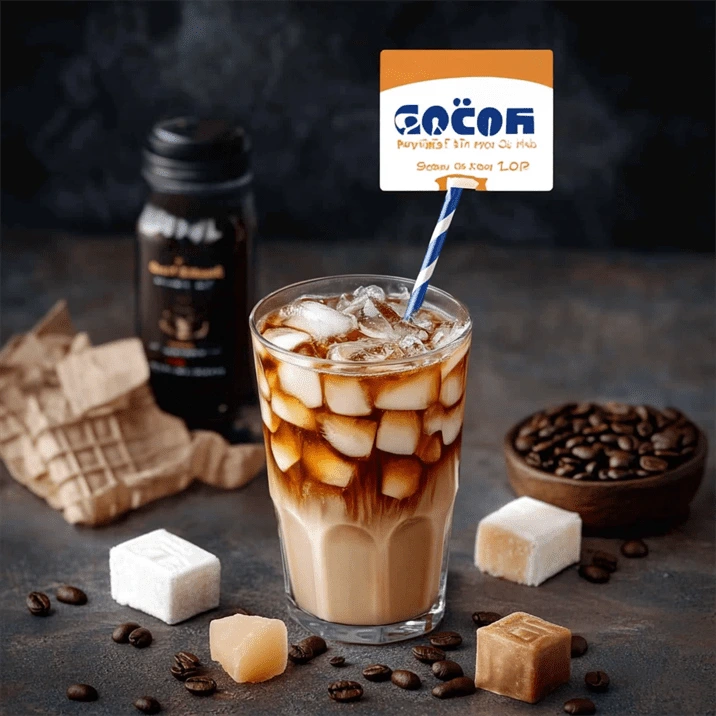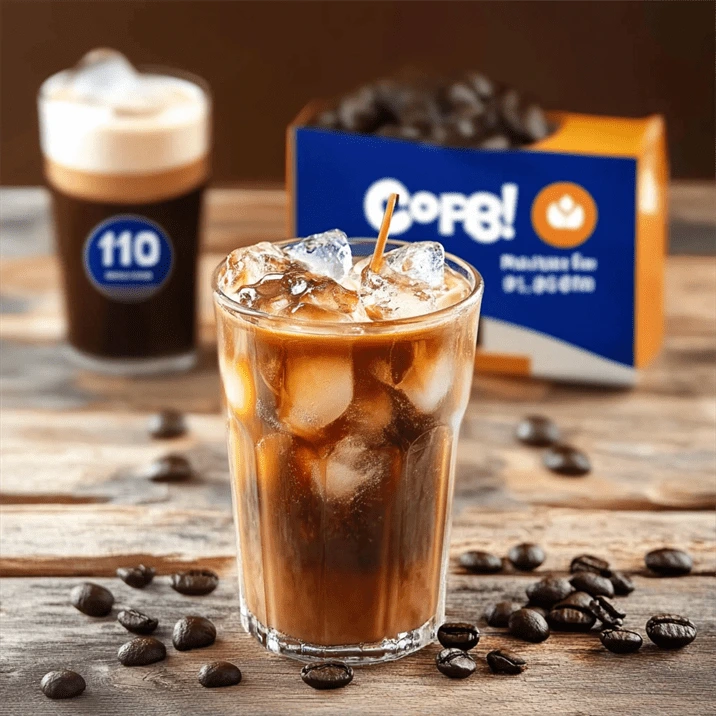What’s Really in Your Iced Coffee? ☕ Sugar & Caffeine Explained ( Part9 )
Table of Contents
🌅 Introduction: What’s in That Refreshing Cup?

On a hot day, nothing hits the spot quite like a chilled, creamy iced coffee. But have you ever wondered what’s really inside that Instagram-worthy cup? 📸 Whether it’s a store-bought brand, a fancy café drink, or a homemade creation, the caffeine and sugar levels can vary dramatically.
This guide will help you decode your iced coffee—from the energy boost to the hidden sweeteners—so you can sip smarter. 💡☕
🧠 Why It Matters: Caffeine and Sugar 101
Both caffeine and sugar affect your body in powerful ways:
- ☕ Caffeine: A stimulant that boosts focus and energy, but too much can cause jitters, anxiety, or poor sleep.
- 🍬 Sugar: Adds flavor but spikes blood sugar levels, which may lead to crashes or long-term health risks.
Knowing what’s in your drink can help you enjoy your coffee without the side effects.
📊 Table: Popular Iced Coffees & What They Contain
| Brand / Type | Serving Size | Caffeine (mg) | Sugar (g) | Calories |
|---|---|---|---|---|
| Starbucks Iced Coffee (Unsweetened) | 16 oz (Grande) | 165 mg | 0 g | 5 |
| Dunkin’ Iced Coffee (Original) | 16 oz | 198 mg | 21 g | 120 |
| McCafé Iced Coffee (Vanilla) | 16 oz | 133 mg | 28 g | 190 |
| Homemade Iced Coffee (Black) | 8 oz | 95 mg | 0 g | 2 |
| Bottled Iced Mocha (Store-Bought) | 13.7 oz | 150 mg | 39 g | 280 |
📝 Caption: From sugar-free to sugar bombs—iced coffee varies more than you think!
🧊 What Affects Caffeine Levels?
Not all caffeine is created equal. Your cup’s strength depends on:
- ☕ Coffee bean type: Robusta has more caffeine than Arabica.
- 🧊 Brew method: Cold brew tends to be higher in caffeine per ounce.
- 📦 Brand recipe: Chains like Starbucks often brew stronger coffee.
- 🕒 Steep time: Longer steep = more caffeine.
💡 Pro Tip: If you want a lighter option, go for iced Americano or diluted cold brew.
🍭 What About Sugar?
Sugar can sneak into your drink from:
- 🧁 Flavored syrups (vanilla, caramel, mocha)
- 🍼 Sweetened milks or creamers
- 🍫 Chocolate sauces or toppings
- 🧃 Pre-bottled sweeteners
Even a simple-looking iced coffee could have up to 10 teaspoons of sugar—far above the daily recommendation. 😬
🧾 Table: Sugar Guidelines vs Iced Coffee Reality
| Category | Recommended Sugar (Daily) | One Sweet Iced Coffee |
|---|---|---|
| Adult Women (AHA) | 25g (6 tsp) | 28–40g (7–10 tsp) |
| Adult Men (AHA) | 36g (9 tsp) | 28–40g (7–10 tsp) |
| Homemade Unsweetened Iced Coffee | 0g | 0g |
📝 Caption: One drink can surpass your daily sugar limit—know before you sip!
💪 Healthier Iced Coffee Swaps
Want to enjoy iced coffee without the crash? Try these:
| Instead of… | Try This… |
|---|---|
| Flavored syrup | Sugar-free vanilla or cinnamon powder |
| Whole milk or cream | Almond milk, oat milk, or skim milk |
| Mocha sauce | Unsweetened cocoa powder |
| Whipped cream | Skip or opt for light whipped topping |
| Extra sugar | Monk fruit, stevia, or agave 🌿 |
📝 Caption: Tiny tweaks = big health wins!
🏡 Homemade Iced Coffee Recipe
🎯 Goal: Simple, balanced iced coffee—low sugar, moderate caffeine
Ingredients:
- ½ cup strong brewed coffee (chilled)
- Ice cubes
- ¼ cup unsweetened almond milk
- Dash of cinnamon or nutmeg (optional)
- Natural sweetener to taste (like stevia or agave)
🧊 Mix all ingredients, pour over ice, and enjoy!
📝 Caption: Barista-quality flavor without the sugar overload.
🤔 How Much Is Too Much?
| Side Effects of Excess Caffeine | Too Much Sugar Might Cause |
|---|---|
| Insomnia, jitters, anxiety | Fatigue, sugar crashes, weight gain |
| Fast heart rate | Increased risk of diabetes |
| Digestive issues | Dental problems |
✅ Safe zone: Up to 400 mg of caffeine per day (about 3–4 small iced coffees)
🌍 Final Thoughts: Sip Smart, Stay Energized
Iced coffee doesn’t have to be a sugar bomb or a caffeine overload. With a little awareness and a few substitutions, you can enjoy a refreshing, flavorful cup that supports your wellness goals. 🙌
Next time you order or make your own, think beyond taste—think health and energy. Your body will thank you. 💛
📝 Caption: Know what’s in your cup before you sip—your health matters.

